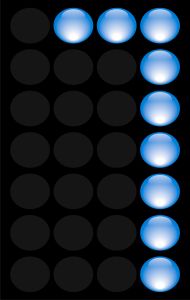04.30.10
Out-of-Cycle Patches for Vista 7 (Not Stable), Security Issues Noted by Google
Summary: Latest versions of Windows suffer from instability problems which Microsoft is trying to resolve even without waiting for the monthly patching cycle; fake “anti-virus” software targets Windows increasingly
Microsoft has just released a bunch of patches outside Patch Tuesday. These patches mostly address bugs in Vista 7, as well as bugs found in close relatives of Vista 7.
Those issues are presented by the Microsoft boosters as “stability” “fixes”* as though they indicate that there are no security issues in Vista 7 (that’s part of the spin), but as we saw before, Vista 7 is full of holes, more so than predecessors perhaps. To name some older posts:
- Vista 7 Cracked Again
- Trend Micro: Vista 7 Less Secure Than Vista
- Vista 7 Less Secure Than Predecessors? Remote BSoD Now Possible!
- Cybercrime Rises and Vista 7 is Already Open to Hijackers
- Vista 7: Broken Apart Before Arrival
- Department of Homeland Security ‘Poisoned’ by Microsoft; Vista 7 is Open to Hijackers Again
- Vista 7 Security “Cannot be Fixed. It’s a Design Problem.”
- Why Vista 7 Could be the Least Secure Operating System Ever
- Journalists Suggest Banning Windows, Maybe Suing Microsoft Over DDoS Attacks
- Vista 7 Vulnerable to Latest “Critical” Flaws
- Vista 7 Seemingly Affected by Several More “Critical” Flaws This Month
- Reason #1 to Avoid Vista 7: Insecurity
- Vista 7 Left Hijackable Again (Almost a Monthly Recurrence)
Also in the news, we are now hearing from Google that fake “anti-virus” software for Windows is being used to hijack people’s computers and their data.
“Social engineering attacks scaring users about false insecurities are not new,” the report noted. “As early as 2003, malware authors prompted users to download fake AV software by sending messages via a vulnerability in the Microsoft Messenger Service … More recent fake AV sites have evolved to use complex JavaScript to mimic the look and feel of the Windows user interface. In some cases, the fake AV detects even the operating system version running on the target machine and adjusts its interface to match.”
The MSBBC insinuates that not only Windows is affected by this:
More than half of the fake software – which predomianntly targets Windows machines – was delivered via adverts, Google said.
Unless it can be proven that fake “anti-virus” software is being delivered to platforms other than Windows (and also reported in this way by Google), the word “predominantly” (the BBC can’t even spellcheck) should really be removed. More reporters should call out Windows. █
_____
* Notice the use of positive language and compare with “instability bugs” or “crash errors” for example; it’s somewhere along the lines of Digital “Rights” Management (DRM).

































 Content is available under CC-BY-SA
Content is available under CC-BY-SA